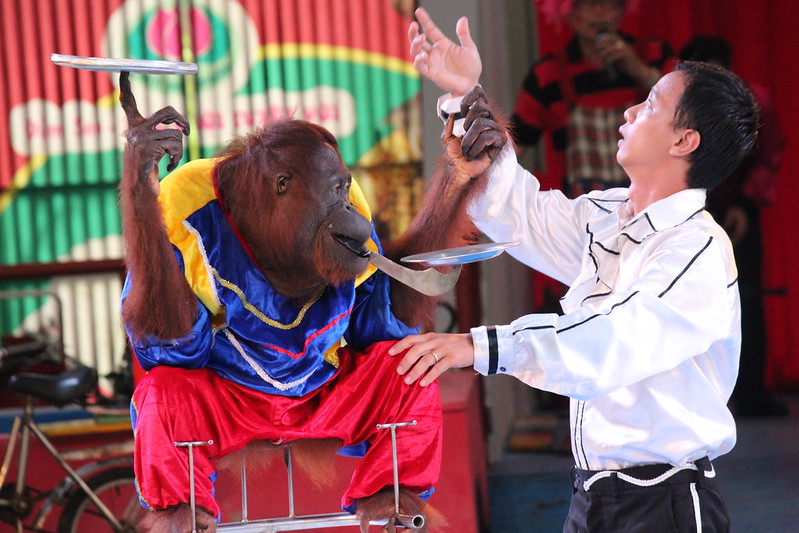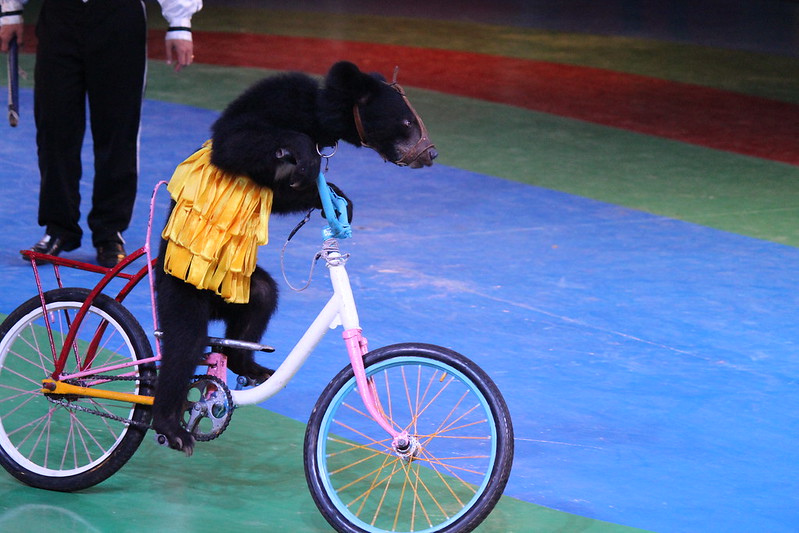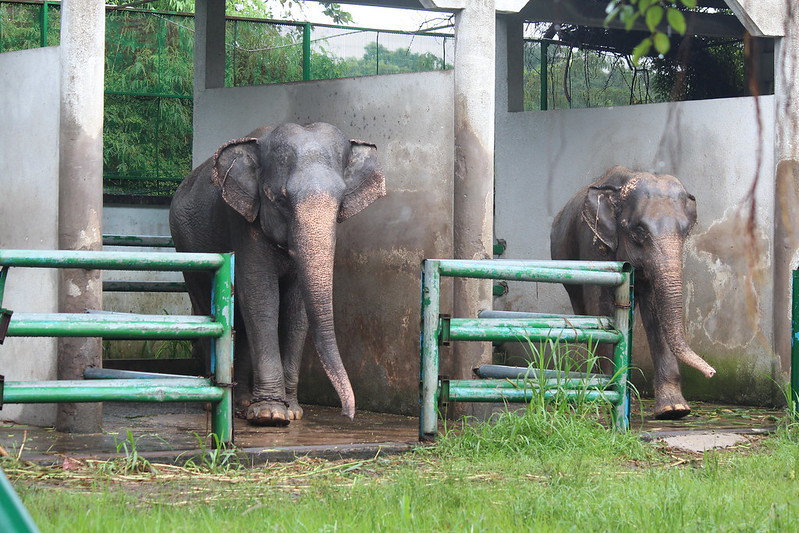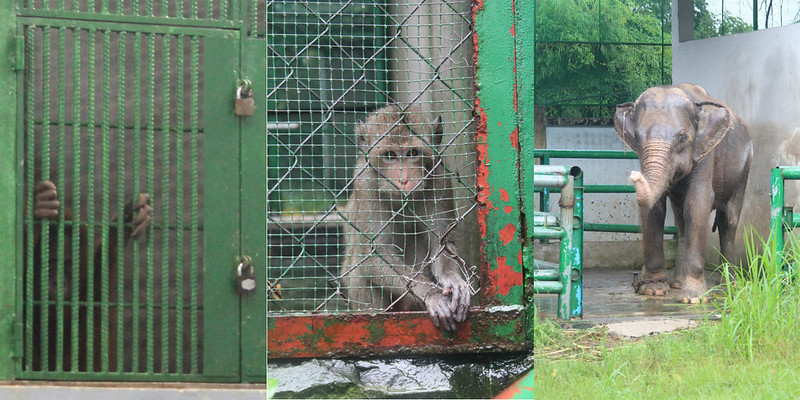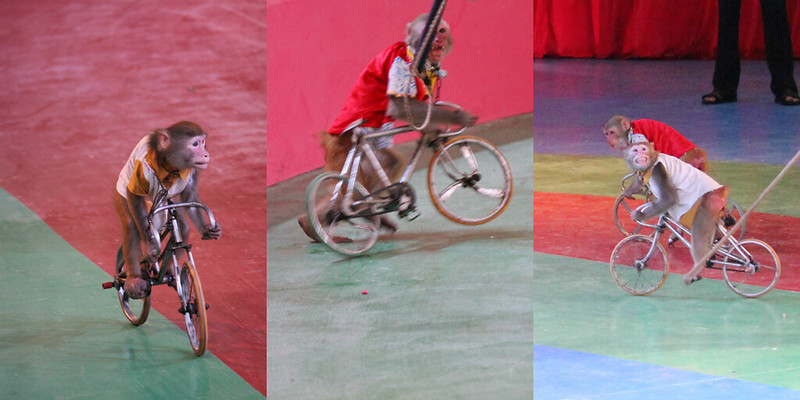Official backing for cruel circus which forced protected species to perform proves ban is vital
15 August 2018
Authorities cease investigation into wildlife crime at circus despite bears, elephants and orangutans having been exploited for profit.
The Forest Protection Department in Vietnam’s Ho Chi Minh City has announced Dam Sen theme park legally obtained the protected species which they forced to perform.
After the release of a report into the scale of cruelty and potential illegality taking place at 16 animal performance facilities across Vietnam, the government launched an investigation into the origin of the species on stage.
CITES regulations – to which Vietnam is accountable – stipulate that Appendix I protected species such as orangutans and moon bears cannot be poached or imported for commercial purposes, including animal performances.
Furthermore, Vietnamese law bans the commercial exploitation of protected species.
Following the release of the report, Dam Sen immediately stopped performances featuring moon bears, elephants and an orangutan. The animals remain on display at the facility but no longer have to perform.
Now the government has cleared the facility of any wrongdoing saying they have all the necessary documentation to explain the source of the animals.
More than 1,000 moon bears are held in Vietnam’s zoos, circuses and bile farms but no facility is known to have the capacity to breed the species raising questions as to how juvenile performing bears are being obtained.
Animals Asia’s Vietnam Director Tuan Bendixsen said:
“Vietnam’s bear bile farmers tried for years to breed moon bears but no facility was ever successful, so we need to know where Vietnam’s circuses are obtaining juvenile bears for performances. The idea they are bred on site is just not credible and all the available evidence suggests they are being poached from the wild. We’ve been told the documentation says the animals are legal, but we haven’t been told where they actually came from.”
While protected species no longer have to perform at Dam Sen, other wild animals such as macaques are still being cruelly exploited for profit.
Animals Asia will now take their concerns to the Vietnam Zoological Association, a member of the World Association of Zoos and Aquariums which has a requirement banning circus performance among its members.
The charity has also sent a petition signed by more than 73,000 people to the Ministry of Culture, Sport and Tourism urging them to ban wild animal performances.
Animals Asia Animal Welfare Director Dave Neale said:
“This was a real chance missed by the government to send a clear message to the country that wildlife crime will not be tolerated on their watch. Unfortunately, they haven’t taken it and their findings show exactly why a ban on wild animal performance is vital for the country to protect vulnerable and endangered species.
“We’re not giving up. Now we’ll take the case to the international governing bodies who oversee these facilities while continuing to highlight the daily cruelty to the Vietnamese public. They deserve to know the true ecological cost to their country of this form of entertainment.”
Animals Asia’s report into Vietnam’s wild animal circuses revealed widespread abuse of 19 species at 16 facilities around the country. Six protected species were found to be performing.
Shockingly, 100% of the facilities failed to meet the animals’ basic needs with hundreds of animals being kept in isolation in tiny cages or chained up for long periods of time.
In response to public outrage and media scrutiny caused by the report, the Director of the Vietnam Circus Federation, Ta Duy Anh declared his federation would phase out the use of wild animals in performances.
Since the report was released publicly in June, more than 73,000 people have signed a petition asking the Vietnam government to ban wild animal performance.
Add your voice to the chorus calling for change. Sign the petition asking the Vietnam government to end cruelty and wildlife crime by banning wild animal performances, and allowing the animals to be sent to sanctuaries and rescue centres.
BACK
